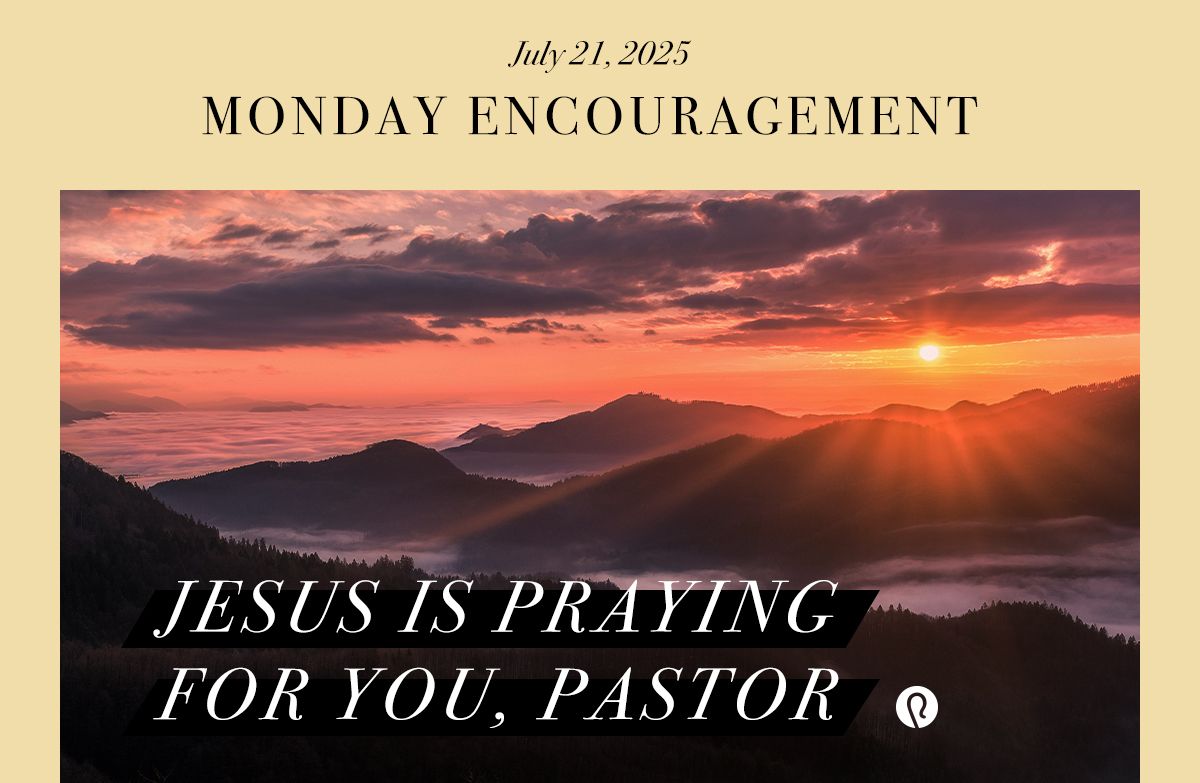FellowshipPreaching/TeachingLeadershipCelebrate RecoveryDiscipleshipSmall GroupsEvangelismWorshipMinistry
Becoming a Purpose Driven Church (An Interview with Rick Warren, Part 1)

Editor's Note: The following is a re-published version of an inspiring interview with Pastor Rick Warren from 2002, and the principles are still extremely relevant to where the church is today. Pass this one along...
Jon Walker: You’re known for saying that pastors need to be more "lost" centered, that is, looking at their church from the perspective of someone who doesn’t go to church. Could you elaborate on that? Rick Warren: The most overlooked principle for church growth is we have to love people the way Jesus did. That’s it! The motive behind everything we’ve done at Saddleback is that we love and care about lost people. The reason Jesus attracted such large crowds is because he loved people. On the other hand, I’ve heard churches justify their lack of growth by saying, "We’re small because we haven’t watered down the Gospel.” But maybe the real reason they don’t have a crowd is because they don't want a crowd! They love their own comfort more than they love lost people. To reach unbelievers you have to move outside your own comfort zone and do things that often feel awkward and uncomfortable to you. It takes unselfish people to grow a church. Lost people have a lot of problems and their lives are messy. It’s not by accident that Jesus compared evangelism to fishing. Fishing is often messy and smelly. So many churches want the fish they catch to be prescaled, gutted, cleaned and cooked. That’s why they never reach anyone. If your church is serious about reaching the unchurched, you must be willing to put up with people who have a lot of problems. The secret of reaching unbelievers is learning to think like an unbeliever. But the problem is – the longer you’re a Christian, the less you think like an unbeliever. And if you’re a seminary-trained pastor, you’re even more removed from unbelievers. You think like a pastor, not a pagan. So you have to intentionally learn to think like an unbeliever again. Paul says, "I become all things to all men so I may, in some way, win some.” What he meant was he let his target determine his approach. When with Jews, he communicated like a Jew. When he was with Gentiles, he communicated like a Gentile. I’m sure if Paul came to Southern California, he’d learn to communicate in Southern Californian terms. Some people think that communicating differently in different cultures is just being a chameleon, but actually it means you're being strategic. You don’t compromise the message. That message is, the faith once delivered for the saints, and we don’t have an option to change the message. But the methods of sharing it have to change with every new generation and location. The programs and tools we used when I was a youth pastor in inner city LA were different from those used as a short-term missionary in Japan, and those methods were different from what we’re doing now at Saddleback. There is no one way to grow a church! It takes all kinds of churches to reach all kinds of people. If you’re getting the job done – lives are being changed – then I like the way you’re doing it, whether or not it’s my style of ministry. Walker: In other words, you’re not interested in Saddleback clones. Warren: Absolutely not! Not one of the dozens of mission churches we’ve planted is doing it exactly like us. We believe every church must have its own unique thumbprint. That’s what The Purpose Driven Church is all about. If a principle is biblical, I believe it is transcultural. In other words, it will work anywhere. But you must filter those principles through the culture of the community, the makeup of the congregation, and the personality of the pastor. Purpose Driven churches are all committed to the same five New Testament purposes of the church, but these congregations come in all sizes, shapes, and cultures. God’s purposes for the church never change, but the programs and methods do. Look around and it’s obvious that God loves variety. He loves to do things in more than one way! Walker: What about prayer and dedication? Is the growth of a church based upon the pastor’s commitment? Warren: It’s a myth that all you need is prayer and dedication to grow a healthy church. Some of the most dedicated prayer warriors I know are pastors of dying churches. It really bothers me that some pastors' conferences promote that myth - leaving pastors feeling discouraged and guilty instead of encouraged. We’ve all heard speakers claim, "If you’ll just pray more, preach the Word, and be dedicated, then your church will grow.” Well, that’s just not true. I can show you thousands of churches where pastors are doctrinally sound; they love the Lord; they’re committed and Spirit-filled and yet their churches are dying on the vine. For instance, in my own denomination about 70 percent of the churches are either plateaued or declining. Is that because 70 percent of our pastors are not dedicated? Of course not. It’s a complete myth. If dedication is all that is needed to grow a church, 99 percent of our churches should be growing today, because most pastors are genuinely dedicated. But growing a healthy church is not that easy or simple. It involves many different factors and requires certain leadership skills. Any time you hear a person say, "This is the one way to growth,” you can be sure they’re wrong because there are many keys to growth. That’s why I'm convinced that the key issue for our congregations in the 21st century is church health - not church growth. Focusing on church growth is the wrong focus. If we’ll focus on developing healthy churches, they will grow automatically. All living things grow – if they are healthy! I don’t have to tell my kids to grow. They do it automatically. Now, what makes a healthy church? The answer is "balance,” just like in the human body. Your body has a number of different systems: a circulatory system, a skeletal system, respiratory system, central nervous system, digestive system and others. When these systems are in balance we call that “health.” When they are out of balance, we call it, “dis-ease,” disease. Likewise the Body of Christ, the church, is made up of different systems, each fulfilling a different purpose: for worship, fellowship, evangelism, discipleship, and ministry. When you have a healthy system or process for each of these purposes, and these systems are balanced, the church naturally grows! But here’s the catch: unless you set up an intentional strategy and structure to ensure balance between the five purposes of the church, then your church will tend to overemphasize the purpose the pastor feels most passionate about. If he has a heart for evangelism, the church may reach lots of people, but nobody grows up in the faith. If he has a gift of teaching, the church will develop mature believers, but will tend to neglect winning the lost. If he has pastoral gifts, the church will have great fellowship and care, but the church’s ministry to the community will suffer or there will be little evangelism. You must set up a Purpose Driven structure that allows the church to become more than just an extension of its pastor. Every church is driven by something: tradition, programs, finances, events, seekers, and even buildings. But to be healthy, it must become Purpose Driven. They need a strategy that will help them grow warmer through fellowship, deeper through discipleship, stronger through worship, broader through ministry and larger through evangelism. Sadly, many churches are personality driven. This puts the congregation in a very precarious position if the leader dies, moves, or has a moral failure. At Saddleback we’ve built the church on purpose, not personality. If I were to die right now, we’d lose maybe 10 percent of the “fringe” people who come to hear me, but that would still leave 90 percent of the other people to attend each week. No church is perfect but you can be healthy without being perfect. Walker: Saddleback has no committees. I’m wondering – can you be a church and not have committees? (Laughter) Warren: That’s funny. It’s true that we have no committees, but we do have lots of different lay ministries. What’s the difference? Committees discuss but ministries do. Committees argue while ministries act. Committees maintain while ministries minister. Committees talk and consider while ministries serve and care. Committees make decisions that they expect other people to implement. At Saddleback, the implementers are the decision-makers. The people who do the ministry get to make their own decisions about that ministry. We do not separate authority from responsibility. We trust people with both. Here’s a radical question: What do these words and phrases have in common: majority rule, parliamentary procedures, ballots, boards, board meetings, business meetings, elections, voting, and committees. None of them are found in the Bible. Yet how many churches do you know that are formed on committees, boards, voting, and majority rule? What we have done is taken an American form of government and pressed it upon the church. The result is often the church is as ineffective and bureaucratic as the government is. We must remember that the church is a body not a business. It is an organism not an organization, and so God intends for it to operate on the basis of spiritual gifts, not elected offices. There is not a single example of voting to elect a pastor or any other church leader person in the New Testament. Voting was so foreign to the New Testament mind that when they chose Judas’ replacement, they cast lots. They were more likely to draw straws than vote.
CLICK HERE FOR PART 2
Jon Walker: You’re known for saying that pastors need to be more "lost" centered, that is, looking at their church from the perspective of someone who doesn’t go to church. Could you elaborate on that? Rick Warren: The most overlooked principle for church growth is we have to love people the way Jesus did. That’s it! The motive behind everything we’ve done at Saddleback is that we love and care about lost people. The reason Jesus attracted such large crowds is because he loved people. On the other hand, I’ve heard churches justify their lack of growth by saying, "We’re small because we haven’t watered down the Gospel.” But maybe the real reason they don’t have a crowd is because they don't want a crowd! They love their own comfort more than they love lost people. To reach unbelievers you have to move outside your own comfort zone and do things that often feel awkward and uncomfortable to you. It takes unselfish people to grow a church. Lost people have a lot of problems and their lives are messy. It’s not by accident that Jesus compared evangelism to fishing. Fishing is often messy and smelly. So many churches want the fish they catch to be prescaled, gutted, cleaned and cooked. That’s why they never reach anyone. If your church is serious about reaching the unchurched, you must be willing to put up with people who have a lot of problems. The secret of reaching unbelievers is learning to think like an unbeliever. But the problem is – the longer you’re a Christian, the less you think like an unbeliever. And if you’re a seminary-trained pastor, you’re even more removed from unbelievers. You think like a pastor, not a pagan. So you have to intentionally learn to think like an unbeliever again. Paul says, "I become all things to all men so I may, in some way, win some.” What he meant was he let his target determine his approach. When with Jews, he communicated like a Jew. When he was with Gentiles, he communicated like a Gentile. I’m sure if Paul came to Southern California, he’d learn to communicate in Southern Californian terms. Some people think that communicating differently in different cultures is just being a chameleon, but actually it means you're being strategic. You don’t compromise the message. That message is, the faith once delivered for the saints, and we don’t have an option to change the message. But the methods of sharing it have to change with every new generation and location. The programs and tools we used when I was a youth pastor in inner city LA were different from those used as a short-term missionary in Japan, and those methods were different from what we’re doing now at Saddleback. There is no one way to grow a church! It takes all kinds of churches to reach all kinds of people. If you’re getting the job done – lives are being changed – then I like the way you’re doing it, whether or not it’s my style of ministry. Walker: In other words, you’re not interested in Saddleback clones. Warren: Absolutely not! Not one of the dozens of mission churches we’ve planted is doing it exactly like us. We believe every church must have its own unique thumbprint. That’s what The Purpose Driven Church is all about. If a principle is biblical, I believe it is transcultural. In other words, it will work anywhere. But you must filter those principles through the culture of the community, the makeup of the congregation, and the personality of the pastor. Purpose Driven churches are all committed to the same five New Testament purposes of the church, but these congregations come in all sizes, shapes, and cultures. God’s purposes for the church never change, but the programs and methods do. Look around and it’s obvious that God loves variety. He loves to do things in more than one way! Walker: What about prayer and dedication? Is the growth of a church based upon the pastor’s commitment? Warren: It’s a myth that all you need is prayer and dedication to grow a healthy church. Some of the most dedicated prayer warriors I know are pastors of dying churches. It really bothers me that some pastors' conferences promote that myth - leaving pastors feeling discouraged and guilty instead of encouraged. We’ve all heard speakers claim, "If you’ll just pray more, preach the Word, and be dedicated, then your church will grow.” Well, that’s just not true. I can show you thousands of churches where pastors are doctrinally sound; they love the Lord; they’re committed and Spirit-filled and yet their churches are dying on the vine. For instance, in my own denomination about 70 percent of the churches are either plateaued or declining. Is that because 70 percent of our pastors are not dedicated? Of course not. It’s a complete myth. If dedication is all that is needed to grow a church, 99 percent of our churches should be growing today, because most pastors are genuinely dedicated. But growing a healthy church is not that easy or simple. It involves many different factors and requires certain leadership skills. Any time you hear a person say, "This is the one way to growth,” you can be sure they’re wrong because there are many keys to growth. That’s why I'm convinced that the key issue for our congregations in the 21st century is church health - not church growth. Focusing on church growth is the wrong focus. If we’ll focus on developing healthy churches, they will grow automatically. All living things grow – if they are healthy! I don’t have to tell my kids to grow. They do it automatically. Now, what makes a healthy church? The answer is "balance,” just like in the human body. Your body has a number of different systems: a circulatory system, a skeletal system, respiratory system, central nervous system, digestive system and others. When these systems are in balance we call that “health.” When they are out of balance, we call it, “dis-ease,” disease. Likewise the Body of Christ, the church, is made up of different systems, each fulfilling a different purpose: for worship, fellowship, evangelism, discipleship, and ministry. When you have a healthy system or process for each of these purposes, and these systems are balanced, the church naturally grows! But here’s the catch: unless you set up an intentional strategy and structure to ensure balance between the five purposes of the church, then your church will tend to overemphasize the purpose the pastor feels most passionate about. If he has a heart for evangelism, the church may reach lots of people, but nobody grows up in the faith. If he has a gift of teaching, the church will develop mature believers, but will tend to neglect winning the lost. If he has pastoral gifts, the church will have great fellowship and care, but the church’s ministry to the community will suffer or there will be little evangelism. You must set up a Purpose Driven structure that allows the church to become more than just an extension of its pastor. Every church is driven by something: tradition, programs, finances, events, seekers, and even buildings. But to be healthy, it must become Purpose Driven. They need a strategy that will help them grow warmer through fellowship, deeper through discipleship, stronger through worship, broader through ministry and larger through evangelism. Sadly, many churches are personality driven. This puts the congregation in a very precarious position if the leader dies, moves, or has a moral failure. At Saddleback we’ve built the church on purpose, not personality. If I were to die right now, we’d lose maybe 10 percent of the “fringe” people who come to hear me, but that would still leave 90 percent of the other people to attend each week. No church is perfect but you can be healthy without being perfect. Walker: Saddleback has no committees. I’m wondering – can you be a church and not have committees? (Laughter) Warren: That’s funny. It’s true that we have no committees, but we do have lots of different lay ministries. What’s the difference? Committees discuss but ministries do. Committees argue while ministries act. Committees maintain while ministries minister. Committees talk and consider while ministries serve and care. Committees make decisions that they expect other people to implement. At Saddleback, the implementers are the decision-makers. The people who do the ministry get to make their own decisions about that ministry. We do not separate authority from responsibility. We trust people with both. Here’s a radical question: What do these words and phrases have in common: majority rule, parliamentary procedures, ballots, boards, board meetings, business meetings, elections, voting, and committees. None of them are found in the Bible. Yet how many churches do you know that are formed on committees, boards, voting, and majority rule? What we have done is taken an American form of government and pressed it upon the church. The result is often the church is as ineffective and bureaucratic as the government is. We must remember that the church is a body not a business. It is an organism not an organization, and so God intends for it to operate on the basis of spiritual gifts, not elected offices. There is not a single example of voting to elect a pastor or any other church leader person in the New Testament. Voting was so foreign to the New Testament mind that when they chose Judas’ replacement, they cast lots. They were more likely to draw straws than vote.
CLICK HERE FOR PART 2







